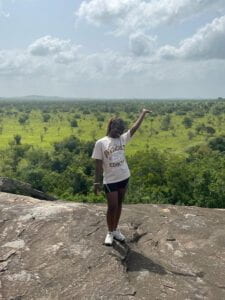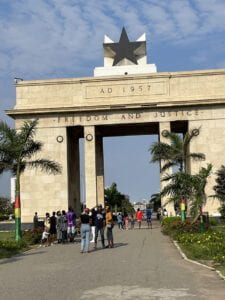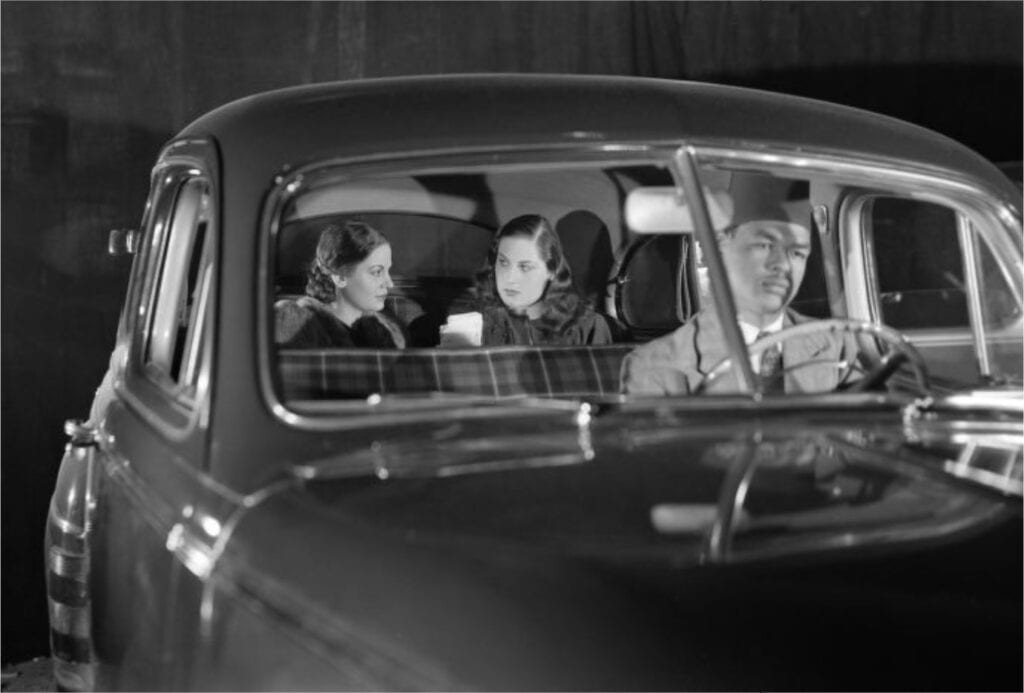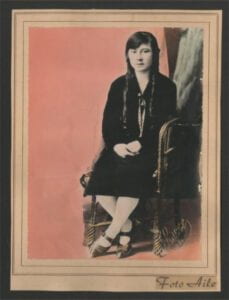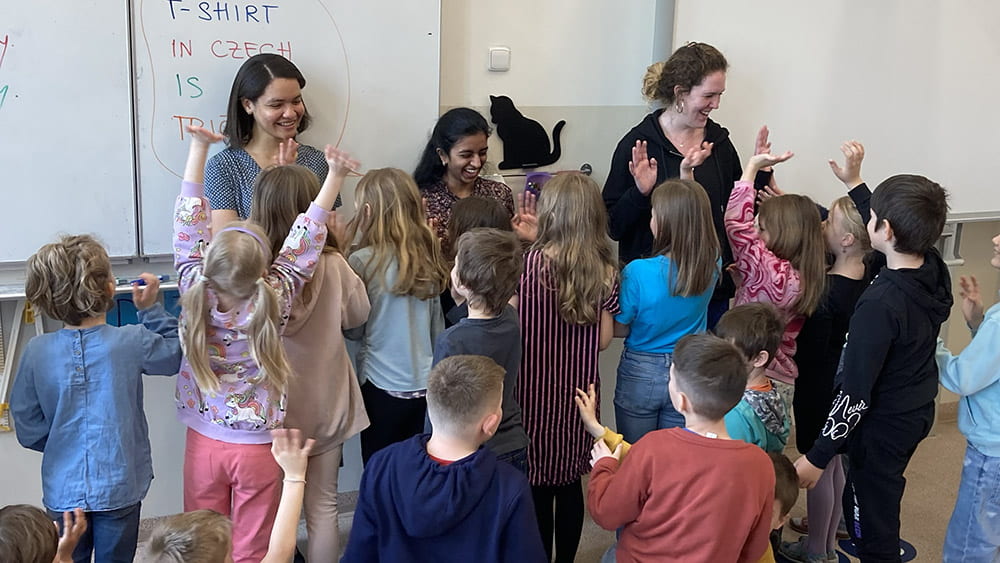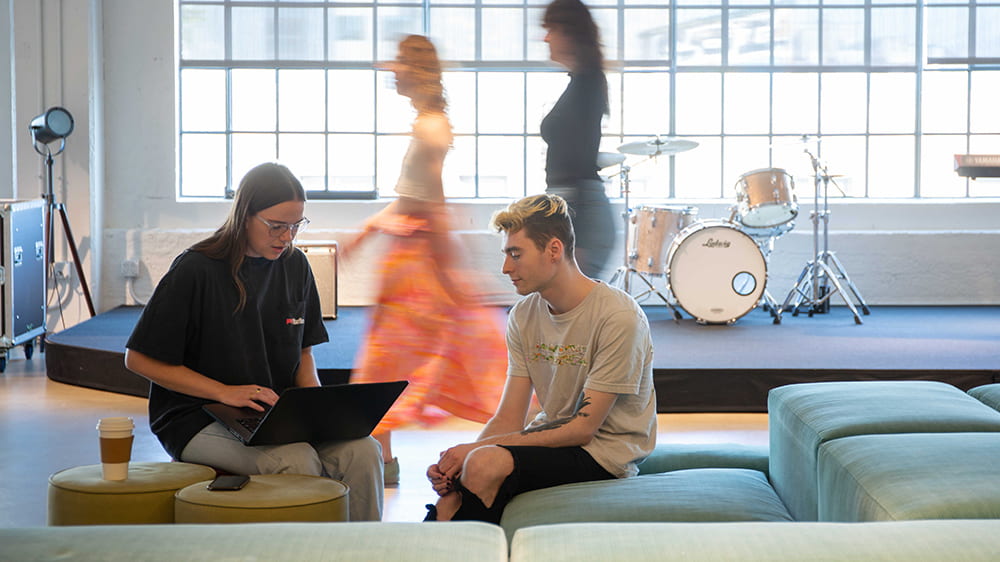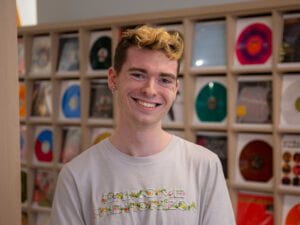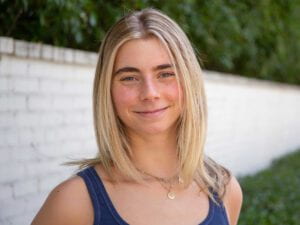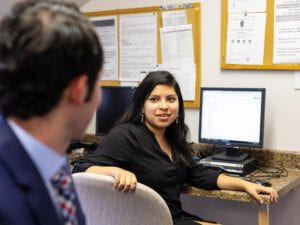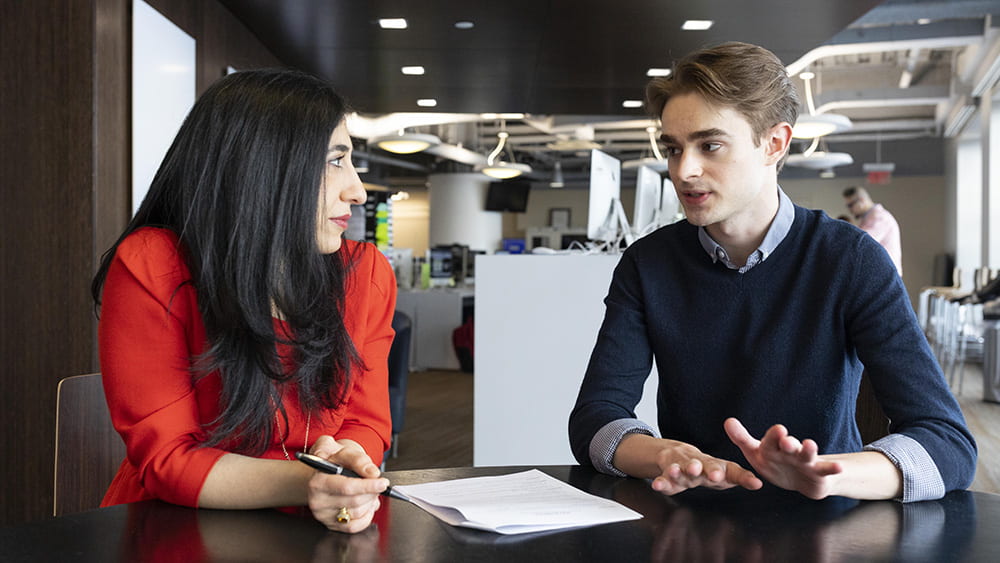Accra’s arts scene is booming—just ask Gifty Affreh and Nicholas Okai, the community engagement coordinator and assistant director for academic programs, respectively, at NYU Accra. The emergence of street art, growth of galleries, exhibitions at hotels, and explosion of various mediums—painting, photography, murals, woodwork, sculpture, writing, dance, fashion, and music—thriving throughout the city have given artists an ideal canvas for their imagination. “The outcome is a culturally artistic landscape characterized by unfathomable creativity,” Affreh says. “There is no dull moment.”
The outside world has caught on, too. A New York Times story early this year noted that “the art world has opened up beyond Europe and North America to create a more globalized market,” with Ghanaian artists like Ibrahim Mahama, El Anatsui, and Amoako Boafo gaining international recognition. National Geographic, too, called the scene in Accra a “city-wide art boom.” And it’s an artistic spirit fully embraced by faculty and students at NYU Accra, where creativity starts in the classroom and expands into the city.
“I never liked contemporary art before this summer because, looking back, I don’t think I ever understood what it could truly be,” says Brewer Roberts, a junior Photography and Journalism major who studied away last summer and calls the city “insanely vibrant.” In Accra, she interned at the Foundation for Contemporary Art–Ghana as well as worked once a week with an artist at Gallery 1957. “There was a very strong community among everyone, whether they were just beginning in the art world or extremely well-established,” Brewer says. And it’s not just about visual arts in Accra. A student’s experience may expand into other disciplines, since the city welcomes musicians, writers, and other creatives to its shore. “The literary and artistic scene in Accra is very vibrant,” says professor Esi Sutherland-Addy, who teaches the course African Women Playwrights. According to Sutherland-Addy, another cultural highlight in Accra is the annual December in GH, which features more than 100 African-centered artistic events. She says that the city is additionally rife with literary festivals, book fairs, arts festivals, and theatre companies.
The music scene is also colorful, notes professor Eric Sunu Doe, who arranges for students to meet some of the city’s most talented musicians in his class Grammy’s Afrobeats & Hiplife: African Contemporary Music. “You are likely to have a community event that involves traditional music-making activities often found in rural communities or a cool, vibey jazz set in another part of the city,” he says. “It is in the evening that you have nightlife almost everywhere buzzing with music.” Doe teaches the class with professor John Collins, and students learn about traditional music, popular dance music, and gospel dance music. What’s more, they experience those styles in person while visiting clubs, churches, shows, and cultural events, Collins notes. One aspect that students are “particularly excited” about is their visit to a local recording studio to “create and record a tune,” Doe adds. “Interestingly these tunes come out quite good,” Doe remarks. “[Students] conceptualize, write lyrics, and suggest to the engineer how they want it to sound.”
Since returning from Accra, Brewer still feels connected to the Ghanaian capital’s arts scene, and Doe notes that many students return to Accra to work with the same artists or continue their studies. “We provide a space for networking, especially with the musicians, who, in a snowballing way, also link them with their own friends and musicians,” Doe explains. “Some students become so connected that they do remain in contact after they leave or even return to Ghana,” Collins adds. Brewer says that there are countless opportunities for students to become part of the arts scene in their time away: “I think that if you put yourself out there and are just willing to socialize and talk to people person-to-person, you can end up anywhere if you just allow it,” she concludes.
Written by Marti Trgovich



